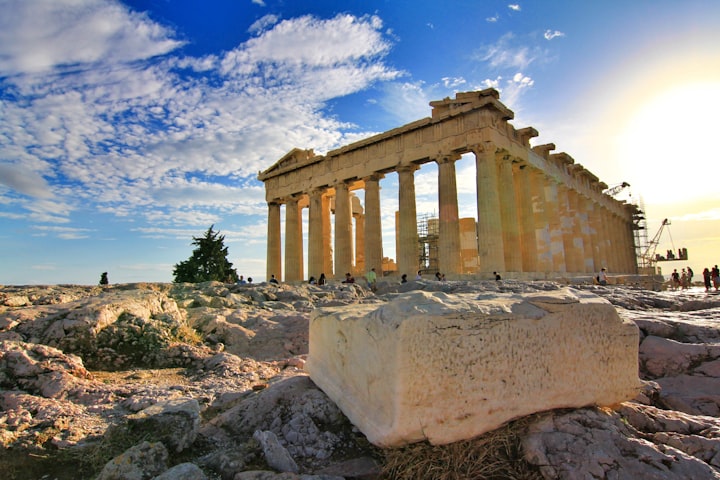One day toward the end of the year 432 BC, the citizens of Athens received some very disturbing news: representatives from the city-state of Sparta had arrived in town and presented to the Athenian governing council new terms of peace. If Athens did not agree to these terms, then Sparta would declare war.
Sparta was Athens’s archenemy and in many ways its polar opposite. Athens led a league of democratic states in the region, while Sparta led a confederation of oligarchies, known as the Peloponnesians. Athens depended on its navy and on its wealth—it was the preeminent commercial power in the Mediterranean. Sparta depended on its army.
It was a total military state. Up until then, the two powers had largely avoided a direct war because the consequences could be devastating—not only could the defeated side lose its influence in the region, but its whole way of life could be put in jeopardy—certainly for Athens its democracy and its wealth. Now, however, war seemed inevitable and a sense of impending doom quickly settled on the city.
A few days later, the Athenian Assembly met on the Pnyx Hill overlooking the Acropolis to debate the Spartan ultimatum and decide what to do. The Assembly was open to all male citizens, and on that day close to ten thousand of them crowded on the hill to participate in the debate. The hawks among them were in a state of great agitation— Athens should seize the initiative and attack Sparta first, they said.
Others reminded them that in a land battle the Spartan forces were nearly unbeatable. Attacking Sparta in this way would play straight into their hands. The doves were all in favor of accepting the peace terms, but as many pointed out, that would only show fear and embolden the Spartans. It would only give them more time to enlarge their army. Back and forth went the debate, with emotions getting heated, people shouting, and no satisfactory solution in sight.
Then toward the end of the afternoon, the crowd suddenly grew quiet as a familiar figure stepped forward to address the Assembly. This was Pericles, the elder statesman of Athenian politics, now over sixty years old. Pericles was beloved, and his opinion would matter more than anyone’s, but despite the Athenians’ respect for him, they found him a very peculiar leader—more of a philosopher than a politician. To those old enough to remember the start of his career, it was truly surprising how powerful and successful he had become. He did nothing the usual way.
In the earliest years of their democracy, before Pericles had appeared on the scene, the Athenians had preferred a certain personality type in their leaders—men who could give an inspiring, persuasive speech and had a flair for drama. On the battlefield these men were risk takers; they often pushed for military campaigns that they could lead, giving them a chance to gain glory and attention.
They advanced their careers by representing some faction in the Assembly— landowners, soldiers, aristocrats—and doing everything they could to further its interests. This led to highly divisive politics. Leaders would rise and fall in cycles of a few years, but the Athenians were fine with this; they mistrusted anyone who lasted long in power.
Then Pericles entered public life around 463 BC, and Athenian politics would never be the same. His first move was the most unusual of all. Although he came from an illustrious aristocratic family, he allied himself with the growing lower and middle classes of the city— farmers, oarsmen in the navy, the craftsmen who were the pride of Athens. He worked to increase their voice in the Assembly and give them greater power in the democracy.
This was not some small faction he now led but the majority of Athenian citizens. It would seem impossible to control such a large, unruly mob of men, with their varied interests, but he was so fervent in increasing their power that he slowly gained their trust and backing.
About the Creator
Shafi Faizi
I just found myself interested in writing, and I meet with writers every day who share their fantastic experiences and opinions. I get my motivation from writers who are creative and satisfied with their job.







Comments (1)
Hey there, just wanna let you know that this needs to have the disclaimer added to the beginning or ending, stating that it was created with the help of AI 😊